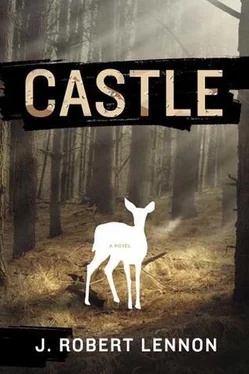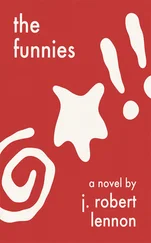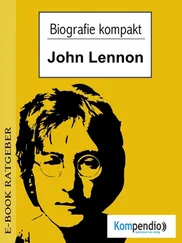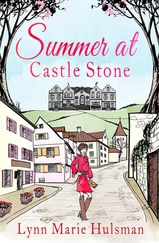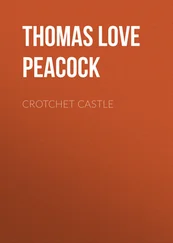I had, of course, no interest in harming this animal — indeed, the prospect disgusted me. As though reading my mind, Doctor Stiles nodded in apparent sympathy and placed a bony hand on my shoulder.
“Eric,” he said, “you will have to free yourself of all personal sentiment. A day will come when misplaced empathy could lead, I’m afraid, to your death. In what we think of as the civilized world — a world, I must inform you, Eric, that is soon to collapse into chaos and lawlessness — it is a virtue to do no harm. In the world to come, it will be a skill as valuable to you as the ability to start a fire, or build a shelter. Throw away your human regard for this animal, Eric. It is an impediment to our goals.
“Now,” the Doctor went on, “if you wished to inflict pain without doing permanent harm, how might you go about it?”
I gazed at the squirrel dolefully, my legs and arms turning to rubber. I wanted to go home. “I… I don’t know, sir.”
The Doctor shook his head. “Think, Eric.”
I understood that I would not be given another chance before I myself became the one to experience pain. “Its… tail,” I blurted. “Sir.”
“What about its tail?”
“We could… cut it off, sir.”
From a sheath on his belt the Doctor pulled his bowie knife, which earlier I had watched him whet against a stone to a deadly sharpness. He now held it out to me. “ You, Eric,” he said.
I suppose I should be expected to say that I felt something awful when I crossed this line — that this first experience of doing intentional harm to another creature powerfully impressed me as the deep, terrible transgression that it was. But that’s not what it was like. The Doctor helped me to hold the squirrel down on the table, and I raised the knife and chopped off its tail; the animal squealed and bled. We put it back into its cage, and watched as it continued to cower. Without a doubt, I was saddened by what I had done, and faintly disgusted by the results. But I overcame my disgust very quickly, and put it behind me, and moved on. And with every passing day, the torture of the squirrel became less and less offensive to my sensibilities, and I was able to do it with great efficiency and skill, and without any apparent negative psychological effects. I remember being surprised to learn what I could become accustomed to — perhaps I was, after all, a born warrior.
The squirrel endured a great number of injuries in the next few weeks, losing several limbs and its eyes and ears before at last refusing all nourishment and succumbing to starvation. At this time the animal was skinned and its carcass buried; and a few weeks later, when we dug them up, we found that the bones had been picked clean by insects and bacteria. We allowed them to bleach in the sun for several days, and then I was permitted to take them home. I kept them in my cigar box, with some birds’ bones I had found, and my cicada shell, and my map. It wasn’t until the following summer, when the Doctor and I began to experiment with larger game, that I was forced to give up the box. By this time, however, the sacrifice of worldly goods had become routine, and I handed the box over without the slightest hesitation. I knew that the lessons I had learned from its contents would be with me always.
It was my memory of that younger, newly emboldened version of myself that brought me back to my senses, and focused my mind on the problem of escaping from the wooden cage. The cage was, of course, made of wood, save for the shackles and chains that bound me to it — and now it occurred to me that, if it was the same cage I knew from my childhood, it could not possibly be as strong as it once was. I gathered my strength and tugged as hard as I could with my right leg. The cage emitted a promising squeak.
My ankle, however, had begun to bleed, and it was with considerable anxiety that I realized I hadn’t felt the wound. The sight of the red blood, set off against pale flesh, filled me with revulsion and desperation. I set to work freeing myself.
I heaved my body up off the floor, trembling with the effort. Then, gently, I tugged upon the chains that held my left arm and left leg. My body swayed to the left, then swung back to the right — which motion I reinforced with a tug on that side’s chains. When I reached the rightmost point of my swing, I tugged on the left side again, then the right, then the left, until I was swinging as far as I could go.
Blood rushed back into my muscles, giving me the strength to continue — but the revivification of my nerves brought terrible pain to my limbs. I stifled a cry, continuing my swinging, and soon the cage itself began to groan, then squeal, then rock back and forth.
At this point, my muscles were crying out for relief. But it seemed unlikely that I could ever again achieve this momentum, and I found the inner reserves to continue. The cage was leaning now, first one way, then the other, and for a moment I wondered if perhaps I had made a grievous mistake, that I might be torn apart with it — and then, with a terrible screech and a sickening lurch, the entire thing leaned, then cracked, then folded up like a cardboard box.
Of course I was inside. The roof of the thing — a thick piece of hardwood ply, if my observations were correct — lay on top of my bruised and bleeding form, having crushed my face as it fell. I could feel blood coursing out of my nose. I managed, somehow, to roll over, my chains having broken free of their mounts, and push up the roof with my back. In a few seconds, I had managed to wriggle out from under it, and lay in the courtyard, delirious with pain. It was there that I fell unconscious.
When I woke, my clothes, pack, and quiver lay by my side, and the shackles had been removed from my wrists and ankles. In the peculiar state of mind that my incarceration had engendered, I did not stop to consider the implications of this fact — namely, that Doctor Avery Stiles had seen me lying there asleep, and had freed me completely, leaving me armed.
It was ten minutes, perhaps, before I was able to sit up. With great slowness and deliberation, I dressed and took up my quiver and pack, and when I was through I carefully got to my feet, bracing myself against the wall of the compound.
The courtyard was echoless, the night clear, the moonlight bright.
I stumbled to the compound doorway and quietly made my way down the stone staircase. The Doctor wasn’t there, only the glowing remains of his fire. My childhood possessions, as well, were gone. I climbed back up and staggered toward the tunnel in the west wall, my knees quivering, my breaths quick and shallow. I crouched down before the tunnel opening and crawled through. I had escaped from the castle.
I stood outside the curtain wall, scanning the treeline with my tired eyes. My muscles throbbed, and I wanted nothing more than to lie down on the ground and go to sleep. But I could not. I had to find Doctor Stiles.
Convinced that no one was watching, I limped across the clearing and stepped over the deadfall and into the woods. Little moonlight penetrated here, so I waited as my eyes, already starved for daylight, adjusted to the gloom, and my body tingled and ached. I breathed in the humusy air and tried to imagine what the Doctor was doing out here, and where he might be. Was he waiting for me? Did he expect me to escape? Did he wish to test me, once again, in the wild?
I was not permitted to go to the castle with Doctor Stiles the week after my all-night adventure, nor the week after that. I was uncertain what had transpired between my parents, but there was a tension, and more than once I spied my mother, through the bathroom keyhole, applying makeup to a bruise. Her resistance to my father, at the time, seemed to me pigheaded and foolish — why couldn’t she see that what the Doctor was teaching me was for my own good, that I was being formed into a man? I had not, of course, forgotten the terror and agony I endured that night in the woods. But already those emotions seemed like the products of a childish imagination, signs of weakness to be renounced and forgotten. I hardened my heart against my mother’s best intentions.
Читать дальше
